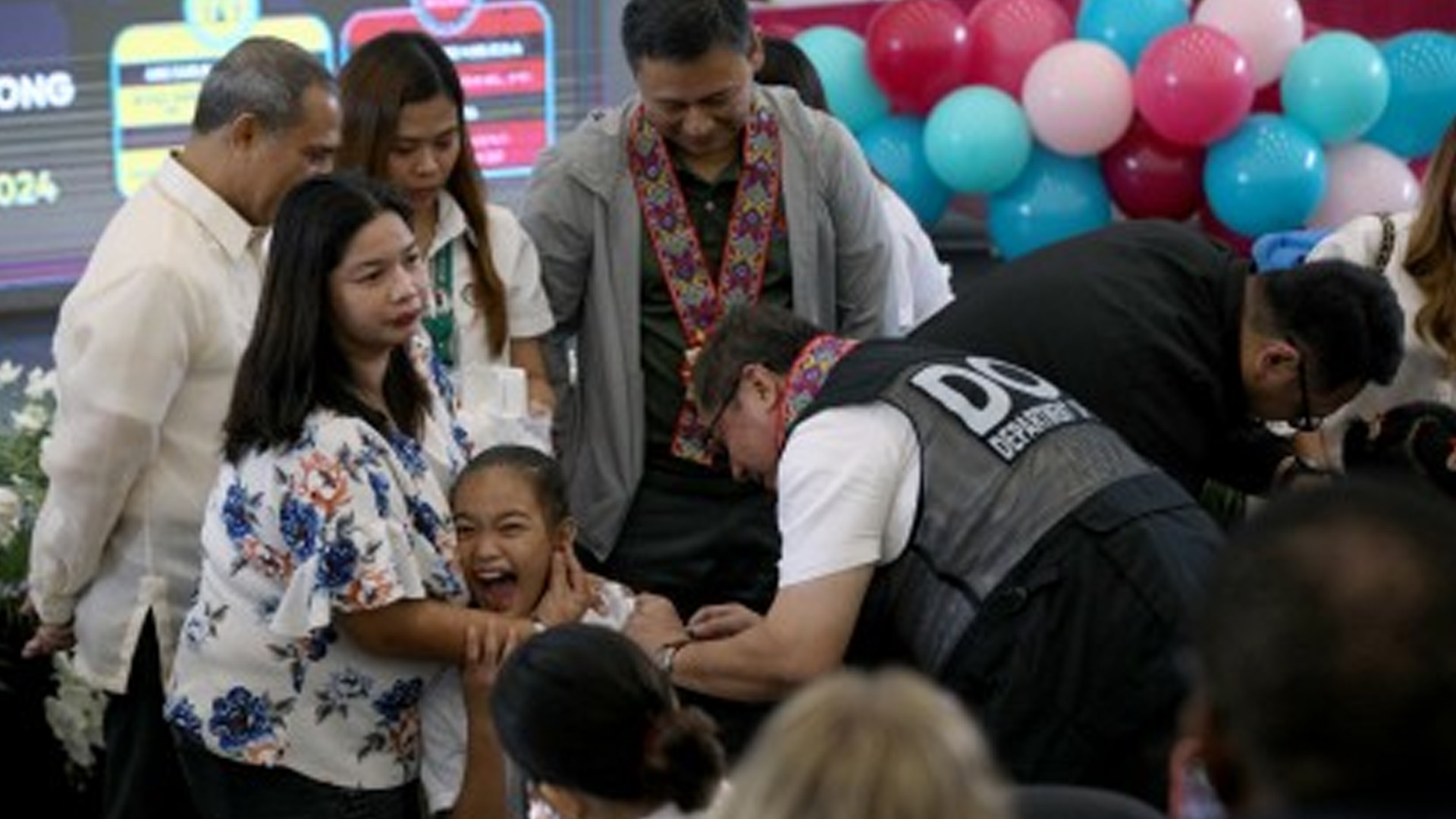The Department of Health (DOH) and the Department of Education (DepEd) on Monday launched a school-based information program (SBIP) to protect school-age children from measles, rubella, tetanus, diphtheria and cervical cancer.
The program also known as Bakuna Eskwela is a joint initiative of the DOH and the DepEd aiming to immunize at least 3.8 million public school students enrolled in Grades 1 and 7 with measles-rubella and tetanus- vaccines.
About 973,930 female Grade 4 students in selected public schools would also be vaccinated with HPV jabs as protection against cervical cancer.
The SBIP has a total budget of PHP853,000,000 and will be implemented across public schools nationwide until November this year.
Health Secretary Teodoro Herbosa thanked President Ferdinand R. Marcos Jr. for his administration’s support to save lives through immunization.
“We also thank our partners from the DepEd and the local government units across the country for helping us save the lives of our students,” he said.
The DOH suspended the SBIP during the Covid-19 pandemic due to mobility restrictions.
From Jan. 1 to Sept. 14, 2024, the DOH recorded 3,356 cases of measles and rubella with 11 deaths; 215 cases of diphtheria with 25 deaths; and 81 cases of neonatal tetanus with 44 deaths.
The agency also noted around 7,897 women are diagnosed with cervical cancer, and about 4,052 die from the disease annually.
Herbosa said all these cases and deaths could have been prevented through safe and effective vaccination.
With the issuance of DOH Department Memorandum 2024-0250, the SBIP continued as in-person classes resume.
Intensified info drive vs. vaccine hesitancy
Meanwhile, Education Secretary Sonny Angara assured that the DepEd will conduct an intensified information campaign to reduce vaccine hesitancy among learners in the basic education sector.
“Talagang may effort ang (there’s really an effort from the) DepEd to talk to each parent at inform them kung ano ang pwedeng mangyari kapag hindi nagpa-bakuna (on what could happen if they refuse to be vaccinated),” he said in an ambush interview.
Angara said the resurgence of life-threatening vaccine-preventable diseases (VPDs) may have been affected by the reduction of those being vaccinated.
“Information dissemination para ‘yung sabi ni Secretary Ted (Herbosa), iyong mga marites ay hindi pakinggan. Ang dapat pakinggan ay ‘yung mga eksperto (So that, just like what Secretary Ted said, we should not listen to gossips. We must listen to the experts),” he added.
Karen Bulseco, a parent, lauded the DepEd’s move as her daughter got the opportunity to join the SBIP.
“Iyong mga nagsasabing delikado raw, mga marites lang po ‘yun. Meron po akong kaibigan na nasa medical industry, sinabi niya na sobrang halaga raw po nun at nag-i-start siya (Those who are saying that it’s dangerous, that’s only gossip. I have a friend who’s in the medical industry and told me that it’s very important which starts) at the age of nine,” she said.
Bulseco also recalled that her sister died due to cervical cancer, which prompted her to have her daughter vaccinated against the disease.
“Mayroon po akong sister na na-diagnose ng cervical cancer noong 2018 at noong 2019, nawala na siya. So one year lang, kaya sobrang halaga po para sa akin itong vaccine (I have a sister who was diagnosed with cervical cancer last 2018 and died in 2019. Just one year, that’s why for me this vaccine is very important),” she added.
Angara, meanwhile, also thanked President Marcos for prioritizing the resumption of the SBIP following its long halt due to the onset of the Covid-19 pandemic.
“Thank you to the President for his support for this program at nabanggit nga ni Sec. Ted Herbosa iyong HPV virus, mga magulang, ang ginagastos diyan (and Secretary Ted Herbosa mentioned that for the HPV virus, parents spend around) PHP4,000,” he said. (PNA)




















